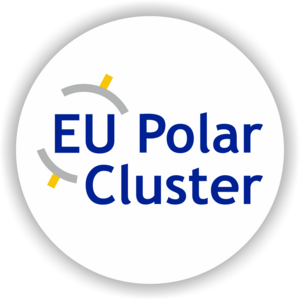Barrow Arctic Research Center, US

Barrow Arctic Research Center, US
The Barrow Arctic Research Center and the Barrow Environmental Observatory are managed by UIC Science, a business unit of the Ukpeaġvik Iñupiat Corporation.
The Center offers access to the Barrow Environmental Observatory, which has 7466 acres of land specifically set aside for research activities only and is located near the community of Utqiagvik.
Contribution to POLARIN key research challenges: 1, 2, 3, 4, 5, 6, 7
Contact: Terri.Mitchell[at]UICCS.com, Lindsay.Cameron[at]UICCS.com
Website
https://uicalaska.com/our-companies/uic-commercial-services/uic-science-llc/
https://www.interact-gis.org/Home/Station/53
Location
Utqiaġvik (formerly Barrow, 5256 inhabitants) is located at the northern tip of Alaska (USA) on the junction of the Chukchi and Beaufort Seas. The adjacent Barrow Environmental Observatory comprises 30.21 km2 of tundra, lakes, and wetlands reserved for scientific research including long-term environmental monitoring and habitat manipulation experiments.
Facilities
The Center is a modern, state of the art Arctic Research Facility built in 2007, and it’s located at the now de-commissioned Naval Arctic Research Laboratory (NARL) campus. Facilities include modern laboratories, storage, vehicle support, internet access, local accommodations, and cafeteria or self-catering facilities.
UIC Science offices, labs, and conference rooms are centralized in the Barrow Arctic Research Center (BARC). UIC Science hosts 40 to 50 projects per year at the BARC. Restaurants, supplies, and grocery stores are available in town.
Several other programs funded through the US government maintain additional facilities in Utqiaġvik including the National Weather Service and Earth System Research Laboratory (both part of the National Oceanic and Atmospheric Admin.), Atmospheric Radiation Measurement Climate Research Facility (Dept. of Energy), and the US Fish and Wildlife Service (Dept. of Interior). Additionally, the North Slope Borough Department of Wildlife Management is based in Utqiaġvik.
Services offered
The Center offers laboratory, meeting spaces, storage and staging spaces, high speed internet, and lodging for Arctic researchers interested in permafrost, sea ice, anthropology, atmospheric research, and much more. It also offers access to the Barrow Environmental Observatory, which has 7466 acres of land specifically set aside for research activities only and is located near the community of Utqiagvik.
The Center is a one stop shop for all logistics. It helps plan the projects, apply for all applicable permits, provides Arctic orientation and some safety training, provides local field guides and bear guards, transportation to and from the field via snow machine, ATV, vessel, or truck, provides storage space for recurring projects, staging space, camp set up and tear down.
What is included in the Access
Unit of access: User/day
Modalities of access offered: In-person access, remote access
The access includes fieldwork planning assistance, permitting support, vehicle rental and support, safety/welcome orientation, lab rental, field technician and bear guard support, snowmachines and ATV rentals, and vessel rentals. The typical duration of work is 2 weeks. Researchers have a high degree of independence while working at the Barrow Arctic Research Center. For field staff support and equipment rentals, reservations must be made in advance.
Availability for access in the 2024 call
The station is available all year round.
Time frame for access preparations
Applications granted in-person or remote access at the Barrow Arctic Research Center will be reviewed by UIC Science (UICS) and selected based on the feasibility of the project, safety, and benefit to the community. If approved, research groups must contact UICS 6 months ahead of fieldwork to begin planning discussions. Each project will be assigned a project manager, who will be the point of contact for all project needs and scheduling.
Permits, licenses and training
Depending on field activities, a variety of permits may be required. Any researcher accessing the tundra (off the road) will need a UIC Land Use Permit. UICS can assist with submitting these permits to UIC Lands. Every project operating out of Utqiaġvik will also need a North Slope Borough permit, which will be reviewed by the local governments planning department. These need to be submitted at least 1 month prior to fieldwork. If needed, UICS can assist with completing and submitting this permit as well. Depending on the nature of the research, additional permits and permission may be needed. The community of Utqiaġvik participates in subsistence whaling and during those months researchers must be respectful and work away from whaling activities. Sensitive months are April – May and September – October. If fieldwork is conducted on the sea ice during whaling, typically the Alaska Eskimo Whaling Commission will need to be contacted. UICS can help advise on timing of visits and locations for fieldwork.
Prior to arrival, the Arctic HSE Specialist will meet with the team to review planned fieldwork, identify any potential risks that may occur, and suggest safety precautions. Upon arrival, the Facilities Manager will present a Welcome Orientation to review UICS facilities and operations, provide cultural information of the area, highlight safety tips, and answer any questions. Anyone utilizing snowmachines or 4-wheelers will receive a snowmachine/4-wheeler orientation in Utqiaġvik and are required to be accompanied by a bear guard in the field. Polar bears are commonly spotted near Utqiaġvik, and bear guards are trained to use deterrent measures and carry a firearm. It is imperative that teams defer to their bear guard’s judgement.
Medical guidelines
Utqiaġvik emergency services are supported by North Slope Borough Search and Rescue, North Slope Borough Police, and the Samuel Simmons Memorial Hospital. UICS is ultimately not responsible for the safety the research team. It’s the responsibility of the research team to have their own health insurance, workers’ compensation, general liability insurance, and evacuation insurance.

